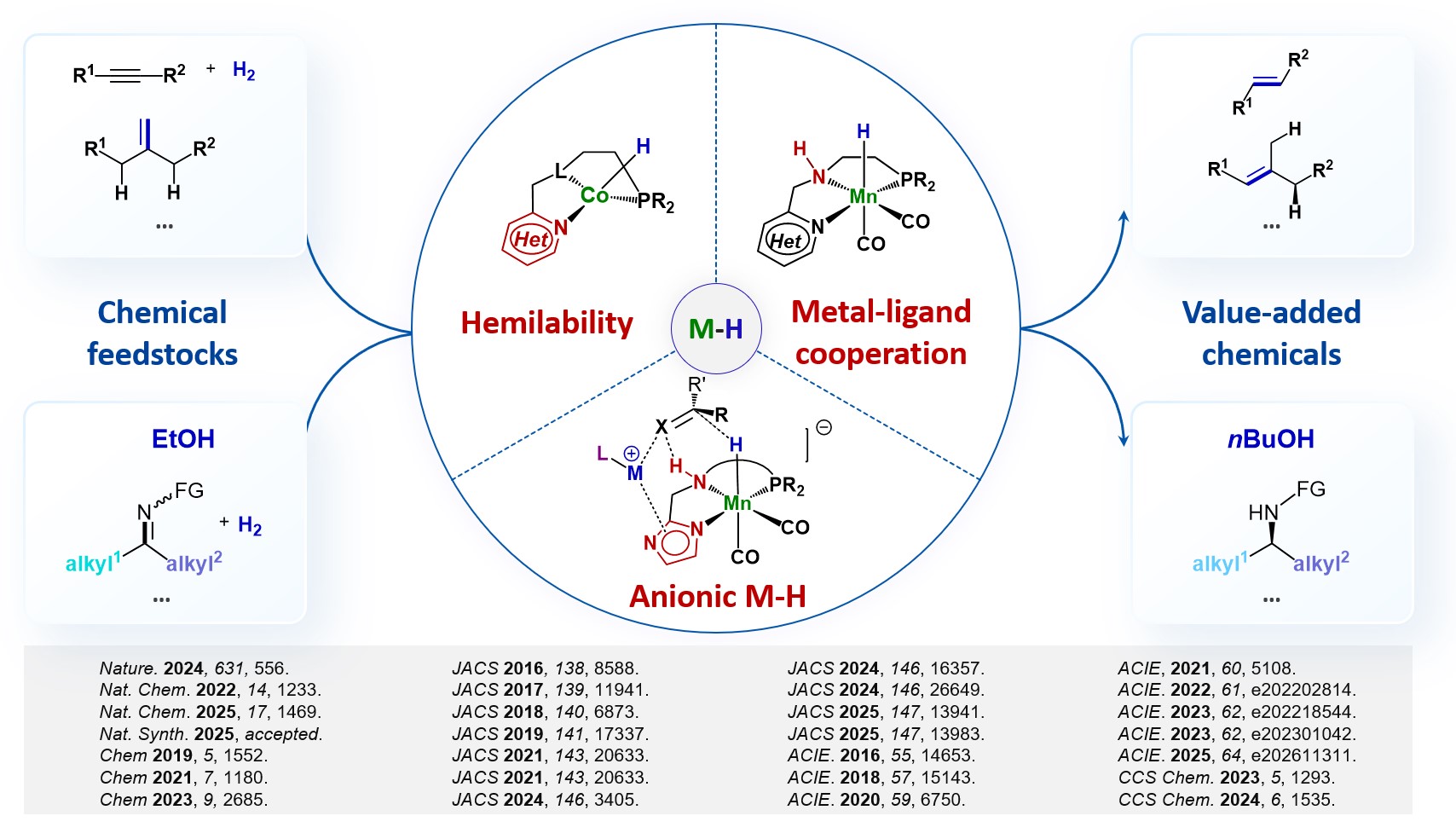Research
Catalytic hydride transfers mediated by metal hydrides represent a prominent transformation in synthetic chemistry. However, most of these processes rely heavily on precious metal-based catalysts. Our aim is to discover novel and efficient metal hydride catalytic systems based on earth-abundant metals through an in-depth understanding of the structure and reactivity relationships of metal hydrides. Towards this goal, we have developed effective strategies to control the reactivity and selectivity of such intermediates, including amino Mn-hydride, Mn/M’ bimetallic hydride and coordinately unsaturated Co-hydride, by modification of the peripheral activation groups on non-innocent ligands. Our work in this area has resulted in several key discoveries. First, we have uncovered a new bimetallic synergistic activation mechanism for hydride transfer process and a new mode of selectivity control by taking advantage of the hemilabile coordination of unsymmetrical ligands; Second, we have established efficient earth-abundant metal hydride catalytic systems, which enable over tens of thousands of TONs in ethanol upgrading and asymmetric hydrogenations; Finally, we have realized a series of new catalytic reactions including site-selective isomerization of gem-disubstituted alkenes and migratory hydrogenation of alkynes, which were not viable for precious metal based catalytic systems. With our continuous efforts, we hope it will pave an avenue for the development of ultra-efficient earth-abundant metal catalytic systems.
